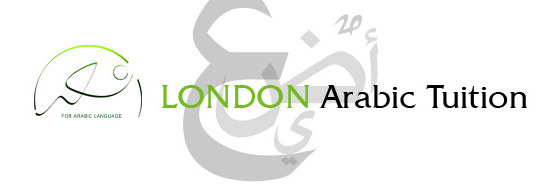Book Your Arabic Lessons With London Arabic Tuition
Over his teaching career, Omar Nassra has had the privilege and pleasure of teaching students from all over the world how to speak Arabic. His classes have included graduates from some of the most respected universities, including Oxford, Cambridge, Harvard and Yale. Diplomats, journalists and lawyers have also attended his courses. As he has worked with students, Omar has noticed certain common mistakes students make when learning the Arabic language.
Some people become so frustrated that they give up on their goal and end up quitting. Others become discouraged and think that they are simply not good at learning the language, when this is simply not the case. Certain mistakes are common to all students trying to learn Arabic. If you have this valuable information in advance, it becomes easier to keep them in perspective as you advance through your courses.
Image credit: FreeDigitalPhotos.net
Some Common Mistakes Students Make When Learning the Arabic Knowledge
1. Learning The Arabic Language is the same as learning French, German or Japanese.
If you want to learn Arabic properly, you’ll need to start off with a completely clean slate. Learning this language is not the same as learning French, German or Japanese. While these languages are a single language, Arabic is in fact two languages: spoken Arabic and Classical Arabic. In order to become fluent in the language, you’ll need to learn both of them.
Spoken Arabic is made up of different dialects. The dialect that a person uses depends on the region where a person lives. Examples of Arabic dialects are:
• Levantine, which is spoken in Syria, Jordan, Lebanon and the Palestinian territories
• Egyptian, a dialect spoken in Egypt and understood through much of the Arab world
• Gulf, the dialect of the people of Saudi Arabia, Kuwait, Qatar, Bahrain, the UAE and parts of Oman
The different variations of Classical Arabic are Quranic Arabic, Modern Standard Arabic and Media Arabic.
• Quranic Arabic is the language of scholars. The Quran is written in this language, as well as a number of literary texts and poems. It is the language of royal courts and an important part of Arabian culture, which is why it has been preserved in its pure form for centuries.
• Modern Standard Arabic (MSA) is the language used in writing and in most formal speech. Most official documents, books, and readers used to each small children are written in this form of Arabic. It is the official language of 22 Arab countries and one of the six official languages of the United Nations (along with Chinese, English, French, Russian and Spanish).
• Media Arabic is the form of expression used for Internet news sites, newspapers and magazines. Mastering this form of Arabic is important for people who are interested in being able to understand current events and distinguish factual reporting from opinion pieces.
Before deciding on a particular course, your first step should be to decide how are planning to use the Arabic language. Is it for personal interest only, or are you planning to travel to a particular country for work or on holiday? Based on your answer, you can choose the right variation of the language and the right dialect to study.
Image Credit: FreeDigitalPhotos.net
2. Focusing Only on One Type of Learning Resource in your Studies
Far too many students decide that they want to learn a particular language and pick up a book, thinking it will give them all the knowledge they need to know. They may go through it from cover to cover and even complete any language exercises in it, but that doesn’t mean that they will be able to speak their new language fluently.
The solution to learning a new language is to take advantage of different types of learning resources, such as online videos and audio tapes, as well as written materials. If you have access to videos and audio tapes, you can review them as often as often as you wish in order to practice listening to and speaking Arabic until you feel comfortable with the dialect you have chosen to study.
The more you practice, the easier you will find learning the language will be for you. This is a skill that you can develop over time, but you need to practice it regularly.
Learn to Speak Arabic with London Arabic Tuition. We can tailor make the tuition to suit your needs or you can join one of our popular courses.





It’s KhaLID not led. WHY r arabs/persians so ignorant t use ‘e’ for the ‘i’ sound?
and Arabic Dialects are NOT arabic…